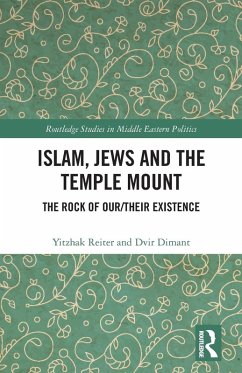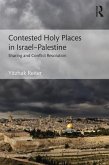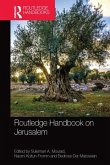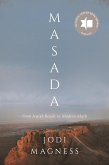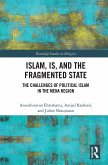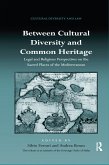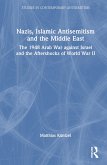This study presents the first comprehensive survey of the abundant early Islamic sources that recognize the historical Jewish bond to the Temple Mount (Masjid al-Aqsa) and Jerusalem. Analyzing these sources in light of the views of contemporary Muslim religious scholars, thinkers and writers, who - in the context of the Arab-Israeli conflict - deny any Jewish ties to the Temple Mount and promote the argument that no Jewish Temple ever stood on the Temple Mount.
The book describes how this process of denying Jewish ties to the site has become the cultural rationale for UNESCO decisions in recent years regarding holy sites in Jerusalem, Bethlehem and Hebron, which use Muslim Arabic terminology and overlook the Jewish (and Christian) history and sanctification of these sites. Denying the Jewish ties to the Temple Mount for political purposes inadvertently undermines the legitimacy of Islam's sanctification of Al-Aqsa and the Dome of the Rock as well as the credibility of the most important sources in Arabic, which constitute the classics of Islam and provide the foundation for its culture and identity.
Identifying and presenting the Jewish sources in the Bible, Babylonian Talmud and exegesis on which these Islamic traditions are based, this volume is a key resource for readers interested in Islam, Judaism, religion and political science and history in the Middle East.
The book describes how this process of denying Jewish ties to the site has become the cultural rationale for UNESCO decisions in recent years regarding holy sites in Jerusalem, Bethlehem and Hebron, which use Muslim Arabic terminology and overlook the Jewish (and Christian) history and sanctification of these sites. Denying the Jewish ties to the Temple Mount for political purposes inadvertently undermines the legitimacy of Islam's sanctification of Al-Aqsa and the Dome of the Rock as well as the credibility of the most important sources in Arabic, which constitute the classics of Islam and provide the foundation for its culture and identity.
Identifying and presenting the Jewish sources in the Bible, Babylonian Talmud and exegesis on which these Islamic traditions are based, this volume is a key resource for readers interested in Islam, Judaism, religion and political science and history in the Middle East.

